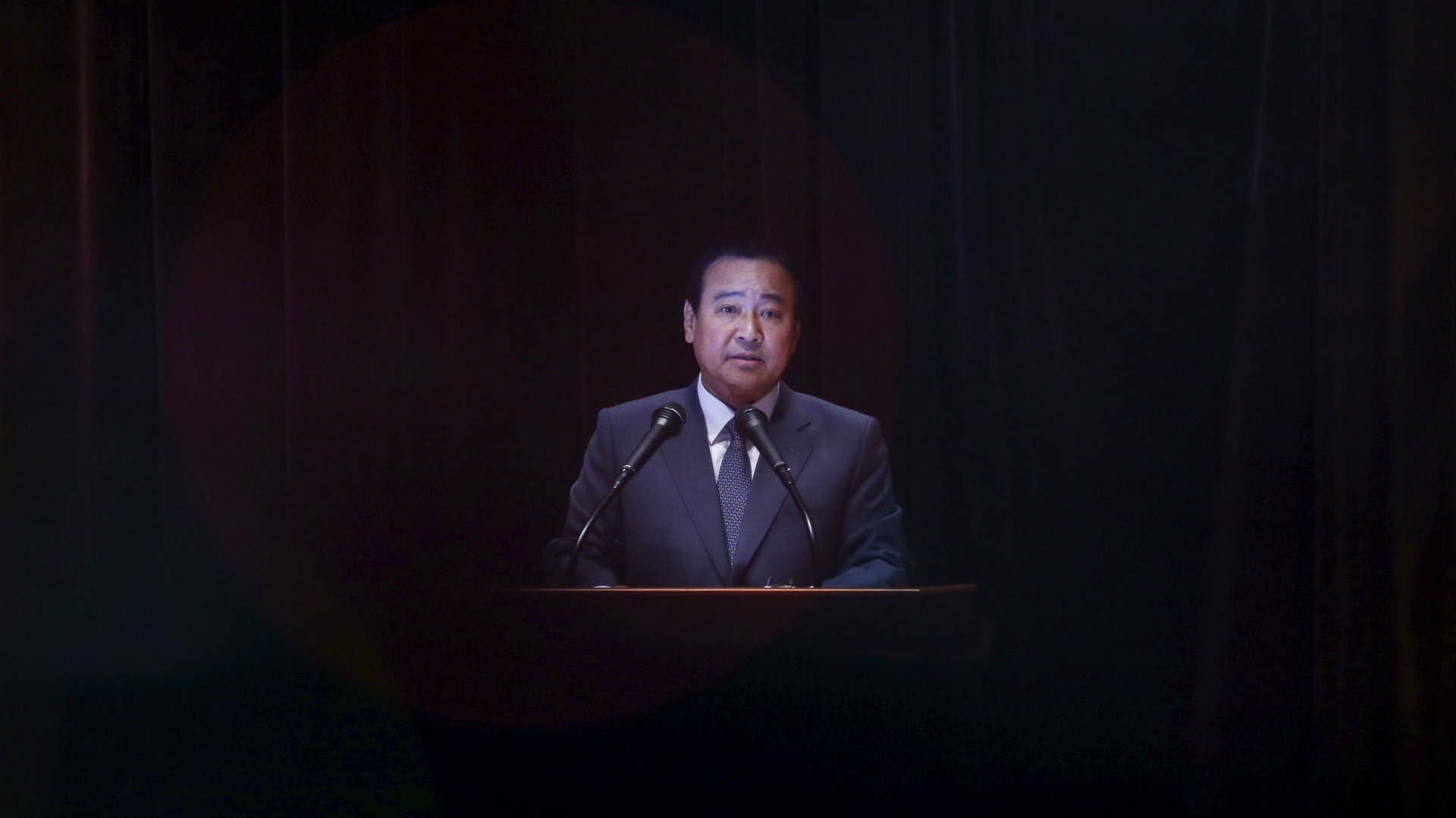South Korea’s prime minister resigns after his name appears on a tycoon’s suicide note
A suicide note has ended the political career of South Korea’s prime minister, Lee Wan Koo, in a widening scandal that is making a mockery of the government’s supposed crackdown on corruption


A suicide note has ended the political career of South Korea’s prime minister, Lee Wan Koo, in a widening scandal that is making a mockery of the government’s supposed crackdown on corruption
Lee resigned about a week after his name was one of several on a handwritten note tucked into the pocket of business tycoon Sung Wan-Jong, who killed himself while under investigation for corruption.
Sung, a former construction company executive, claimed that he had paid Lee 30 million won (about $27,000) when Lee was campaigning for a parliamentary seat in 2013. Just last month, Lee declared “all out war” on corruption in the government.
It’s only the latest corruption scandal to hit South Korea, a country that has emerged as the fourth largest Asian economy but where bribes and personal favors are common currency in business and political circles. Two former South Korean presidents have been jailed for taking bribes, as well as several business leaders and relatives of top officials.
Others may still get caught up in the dragnet that threatens to derail Park’s already embattled presidency. Seven other names, next to numbers indicating bribery sums, were also included on the list. Several of them are current and former advisors to the president and people close to Park’s New Frontier party, including her chief of staff, Lee Byung Kee. Sung was getting ready to face questions by prosecutors over claims that he used company money to bribe government officials when he killed himself.
In March, South Korea’s legislature passed a bill that makes it easier to prosecute graft. Corrupt public officials now face up to three years in jail and fines of 30 million won, which is incidentally the same amount that Sung alleges he paid the ex-prime minister.
“I feel very sorry for causing a public anxiety.”Lee said in a statement. “But I believe the truth will be revealed certainly.”